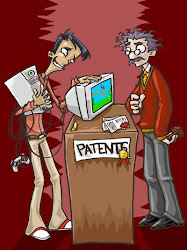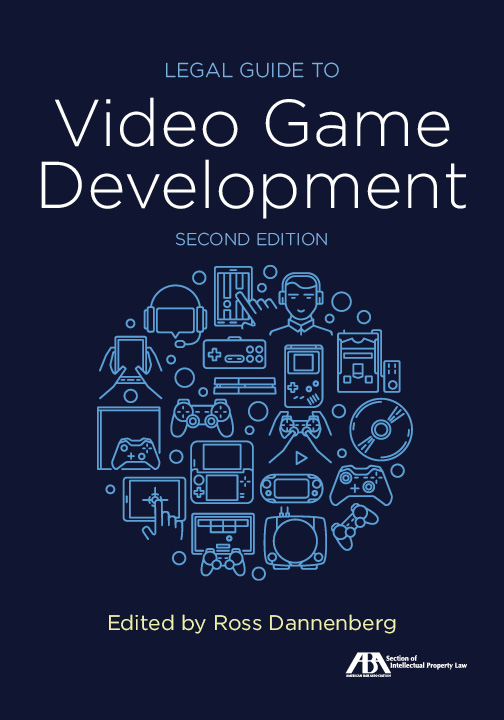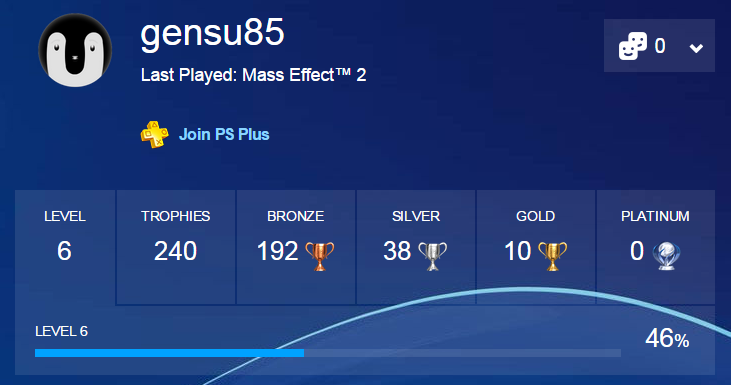Timeplay, Inc. v. Audience Entertainment, LLC
Central District of California
Case No. CV 15-05202
Patentable subject matter under 35 USC 101 has become a primary issue in most
patent cases since the Supreme Court’s Alice
decision in 2014. Many patents have been invalidated by courts as directed
to abstract ideas without significantly more.
In an order dated November 10, 2015, the Central District of
California has refused to invalidate a multiplayer video game patent (
US Pat. 8,951,124) directed
to downloading separate game software to a controller that complements the main
game software. Audience Entertainment had argued that the claims were directed to "nothing more than the abstract idea of allowing multiple people to play a game together on a shared display using generic computer and communications hardware." Timeplay responded that their patent "only exists in the field of multi-player video gaming" and that the claims "have core distinguishing features that a family playing Pictionary would never dream were necessary on game night." (Opinion at 7-8).
Claim 1 of the '124 patent reads:
1. A multi-player game system comprising:
a game server configured to run a game software to facilitate a multi-player game, the game server further configured to provide display signals for displaying the multi-player game;
a display system having primary display means, the display system being configured to provide a primary game display of the multi-player game on the primary display means in response to the display signals;
a plurality of handheld game controllers, each handheld game controller having secondary display means and input means; and
communication controller for enabling communication between the game server and each handheld game controller;
wherein the plurality of handheld game controllers are located in proximity to the primary display means such that the primary display means is visible to game players manipulating respective handheld game controllers; and
wherein the game server is configured to download a game software module to each handheld game controller using the communication controller prior to initiation of the multi-player game, each game software module executable by the corresponding handheld game controller to enable the corresponding handheld game controller to provide a secondary game display on the secondary display means in response to player input received at the input means, wherein the secondary game display is complementary to the primary game display, and to enable participation in the multi-player game by the corresponding game player.
The Court agreed with Timeplay that the claims were not directed to an abstract idea and, further, that the recited claim elements amounted to significantly more than any abstract idea. In analyzing the claims for the presence of an abstract idea, the Court looked to the background section of the '124 patent and noted that the invention was disclosed in the context of multi-player gaming systems. The Court also noted that the presence of generic computer limitations did not itself render the claims directed to an abstract idea. (Opinion at 8).
In assessing the second portion of the Alice framework, whether the claims added significantly more to transform the abstract idea into patent eligible subject matter, the Court focused on the limited scope of the claims as constrained to the realm of multi-player gaming. The Court was convinced that the '124 patent was designed to sole a problem particular to the realm of multi-player gaming, akin to the website branding problem in DDR Holdings. The DDR Holdings case is one of the recent cases to come out in favor of patentability where software inventions are concerned. The Court also noted that the claims recited significant hardware components acting in concert as further support for denying the motion under 35 USC 101. (Opinion at 11-12).
This case is one example of claims that may survive the new and evolving patentable subject matter test in the wake of Alice. Many more cases have been found invalid, but those that survive may serve as useful examples for drafting patentable claims.








